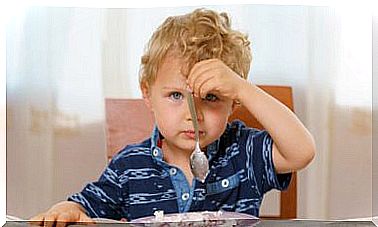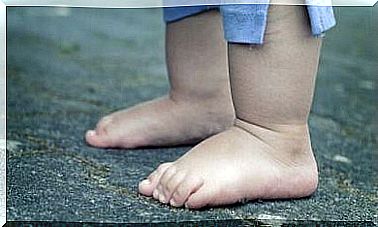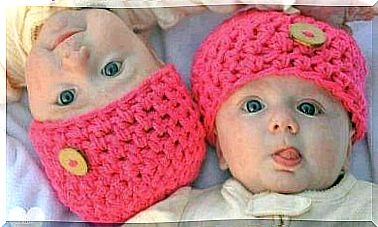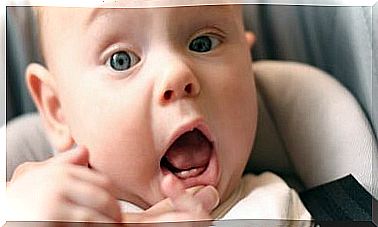During Pregnancy You Shouldn’t Eat For Two
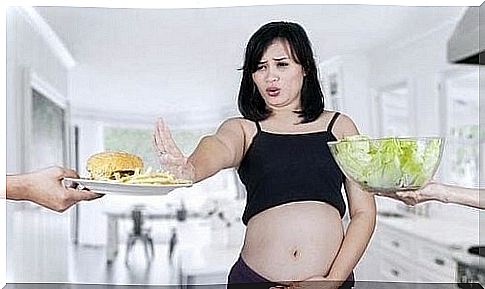
While you may feel double hungry during pregnancy, it is not recommended to eat for two. This belief is wrong, all doctors unanimously recommend that it is more important to look for quality in food rather than quantity.
Nature is wise and leaves nothing to chance. During pregnancy, the body is much more efficient at extracting nutrients from what is eaten. Eating for two does not increase the chances of having a healthy baby, it only leads to excessive weight gain for the expectant mother. This weight gain raises the risk of complications throughout the entire pregnancy.
The health and growth of the baby are directly connected with the nutrition that took place before being pregnant and throughout the pregnancy. It is very important to follow a proper diet so, before falling into temptation, remember that you are eating for a child and not for another adult. Pay attention to the quality of the food you eat, not the quantity.
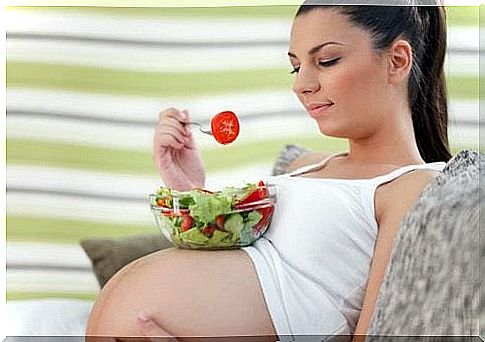
It is important to eat healthy
Eating well is one of the best measures you can take to help your baby grow and develop properly. Having a healthy and balanced diet can help prevent:
- excessive weight gain
- the appearance of gestational diabetes
- decreases the chances of having a caesarean section
- avoids anemia and possible infections.
At the same time it excludes the risk of insufficient scarring or premature birth of the baby, along with other possible complications.
If you were at a healthy weight before waiting, it is best not to consume extra calories in the first trimester. Add about 300 calories a day in the second quarter and about 450 in the third. If your ideal weight is a little higher or lower, you will have to adapt these recommendations (300 calories) to your situation depending on the weight goal to be achieved, as advised by your doctor.
You have to keep in mind that these additional 300 and 450 calories are more easily consumed than you might think. For example, with two glasses of skim milk and two rusks or a tuna sandwich you will already have the additional calories you need in the last quarter.
During pregnancy, eat what you need
It is not known precisely how the body of a pregnant woman distributes nutrients between her and the baby. These nutrients also come not only from food but also from the reserves contained in the bones and other maternal tissues. What is certain is that both feeding before pregnancy and feeding during the nine months is strongly related to the development of the baby.
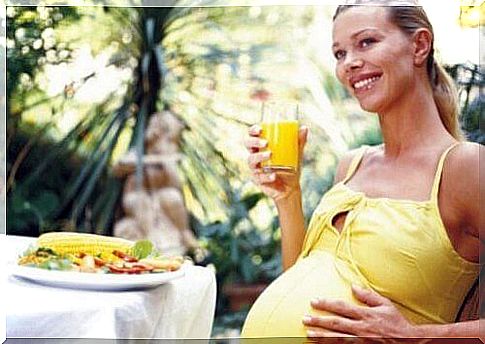
Therefore, to ensure that the child receives all the nutrients he needs to grow healthy, it is essential to have adequate nutrition. This must include foods belonging to each group and in the right proportions in order not to suffer from hunger and not to have excessively exceed the calories required by the body.
The preparation and consumption of food is also very important with an eye to hygiene: this reduces the risk of incurring various diseases.
Past scientific studies believed that the baby was the perfect host, capable of taking everything it needed from the mother’s body regardless of the woman’s diet. This belief held, for example, that if the mother’s diet lacked calcium this did not affect the baby but only the mother. They claimed that the baby would extract it from the reserves stored in the bones and teeth, thus weakening the mother’s organism.
Today, experts think that the one who suffers, when there is a shortage of nutrients in the mother’s diet, is the child who is developing. It is also believed that food shortages during pregnancy damage the baby’s health throughout his life. The same happens with an excess of nutrients. For this reason, experts insist that nutrition be as balanced as possible, to ensure a perfect balance in the development of the child.
Nutrients the baby needs
The main recommendation for all pregnant women is to completely avoid junk food. Foods rich in protein, low in fat and low in sugar (sugar provides only empty calories) or carbohydrates are preferred. The nutrients your baby needs are:
- Calcium, which helps the growth of the child.
- Iron, which helps the baby’s blood circulation and prevents anemia in the mother.
- Folic acid, which helps reduce the risk of spina bifida (incomplete closure of the spinal cord), anencephaly (brain abnormality) and other birth defects.

